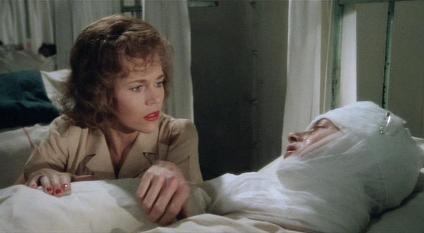| Academy Award Nominations and Winners: |
| Best Picture |
| Best Director: Fred Zinnemann |
| Best Actress: Jane Fonda |
| ★ | Best Supporting Actress: Vanessa Redgrave |
| ★ | Best Supporting Actor: Jason Robards |
| Best Supporting Actor: Maximilian Schell |
| ★ | Best Adapted Screenplay: Alvin Sargent |
| Best Cinematography: Douglas Slocombe |
| Best Costume Design: Anthea Sylbert |
| Best Film Editing: Walter Murch & Marcel Durham |
| Best Original Score: Georges Delerue |
|
| Golden Globe Nominations and Winners: |
| Best Picture (Drama) |
| Best Director: Fred Zinnemann |
| ★ | Best Actress: Jane Fonda |
| ★ | Best Supporting Actress: Vanessa Redgrave |
| Best Supporting Actor: Jason Robards |
| Best Supporting Actor: Maximilian Schell |
| Best Screenplay: Alvin Sargent |
|
| Other Awards: |
| Writers Guild of America: Best Adapted Screenplay (Drama) |
| New York Film Critics Circle: Best Supporting Actor (Schell) |
| Los Angeles Film Critics Association: Best Supporting Actress (Redgrave); Best Supporting Actor (Robards); Best Cinematography |
| British Academy Awards (BAFTAs): Best Picture; Best Actress (Fonda); Best Screenplay; Best Cinematography |

